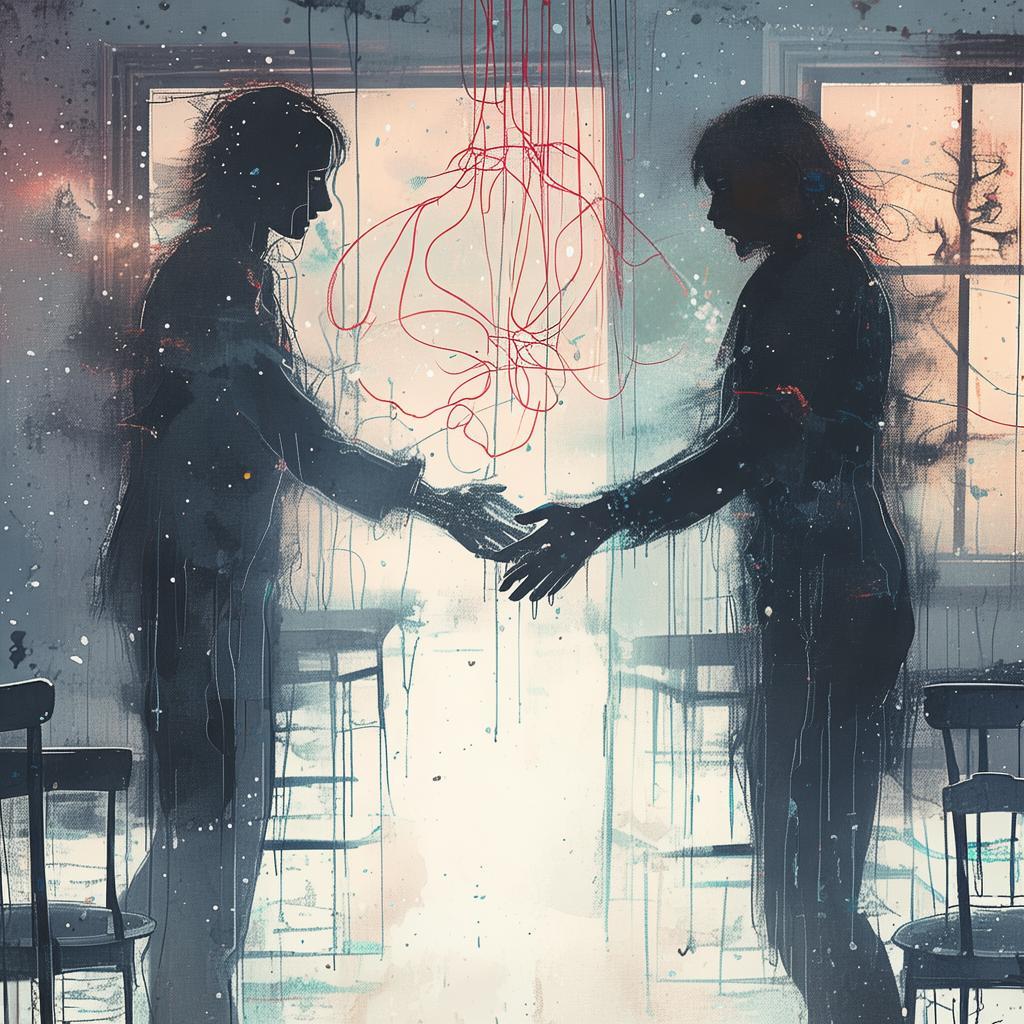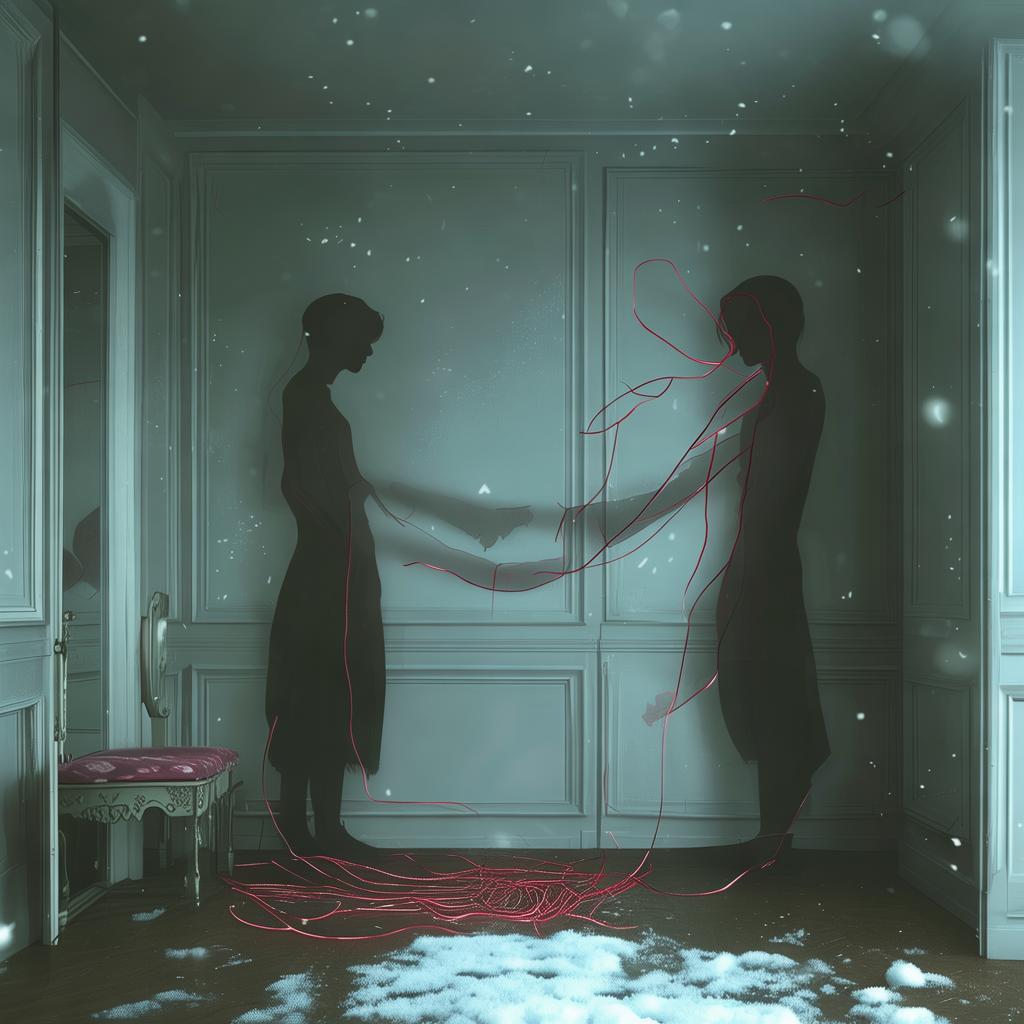Orpheus and the Unseen Veil
In the shadowed realms where the living and the dead coexist, there exists a place where the veil between worlds is thin, and the passions of the living burn brighter than the stars. Here, in the heart of the Elysian Fields, lay the soul of Eurydice, ensnared by the bane of mortality. Orpheus, the renowned lyre-player, a man whose music could move the mountains, was the only one who could reach her. But the journey to the Underworld was fraught with peril, and the price of reunion was a heart-wrenching condition: he must not look back upon his beloved until they had crossed the threshold of the living world.
Orpheus, driven by an overwhelming love that was as fierce as it was blind, ventured into the Underworld, his lyre strung with the finest strings, the music that once soothed the gods. The Fates, the weavers of destiny, were entranced by his song, but the Queen of the Underworld, Persephone, was not swayed by his talent. She had her own law: no soul could be released until the payment was made, and for Eurydice, that payment was her own life, to be given up upon her return.
As Orpheus descended into the realm of the dead, the air grew thick with the scent of decay and the whispers of the lost. His heart, heavy with the weight of love, led him through the caverns where the shades wandered, their forms faint and their voices hollow. He encountered the specters of ancient heroes and forgotten queens, each with a tale of loss and longing that mirrored his own.
At the throne of Persephone, Orpheus stood, his eyes never leaving the vision of Eurydice. He played his lyre, and the notes that flowed from it were so pure and so powerful that even the Queen of the Underworld was moved. She granted him an audience, but she spoke with a voice as cold as the soil of the grave.
"You may take her with you, Orpheus, but you must not look upon her until you have reached the world of the living. If you fail, she will remain in the Underworld forever."
Orpheus, driven by his love, accepted the deal. He and Eurydice, bound together by a single thread of life, emerged from the Underworld. They walked through the twilight, the air growing warmer and the world more vibrant with life. But as they traveled, Orpheus felt the weight of the world upon his shoulders, and his love, which was once a fierce flame, began to wane.
The pull of the living world, the warmth of the sun, and the laughter of the children who played in the fields around them, all worked against his resolve. His love, once unbreakable, now felt like a fragile thread, ready to snap at any moment. As they reached the threshold of the world of the living, the moment of truth came.
Orpheus turned to Eurydice, his heart racing, his breath catching in his throat. He had reached the edge of the world, but his eyes, filled with the fear of losing her, would not leave her. And in that instant, the thread of their shared life snapped. Eurydice's form began to fade, her voice a faint whisper that died on the wind.

Orpheus's cry was a bellow that echoed through the fields, his soul torn asunder. He had failed. The love that had once filled him was now a hollow void. As Eurydice's form dissolved into nothingness, Orpheus fell to his knees, the tears streaming down his face.
He had failed her. He had failed himself. The lyre that once sang the sweetest melodies was now silent, its strings broken. Orpheus, the man whose love had been so great that he could traverse the veil between worlds, now lay in the dust, his heart heavy with the weight of his own failure.
In the end, Orpheus realized that true love was not merely about the union of two souls but about the strength to let go, even when the pain was unbearable. He buried Eurydice beneath a tree, the roots of which were bound by the same love that had torn them apart. And as he lay beside her grave, he played one final note on his broken lyre, a melody of loss and longing that was heard by none, a testament to the love that had once been, and the pain that had forever changed him.
✨ Original Statement ✨
All articles published on this website (including but not limited to text, images, videos, and other content) are original or authorized for reposting and are protected by relevant laws. Without the explicit written permission of this website, no individual or organization may copy, modify, repost, or use the content for commercial purposes.
If you need to quote or cooperate, please contact this site for authorization. We reserve the right to pursue legal responsibility for any unauthorized use.
Hereby declared.









